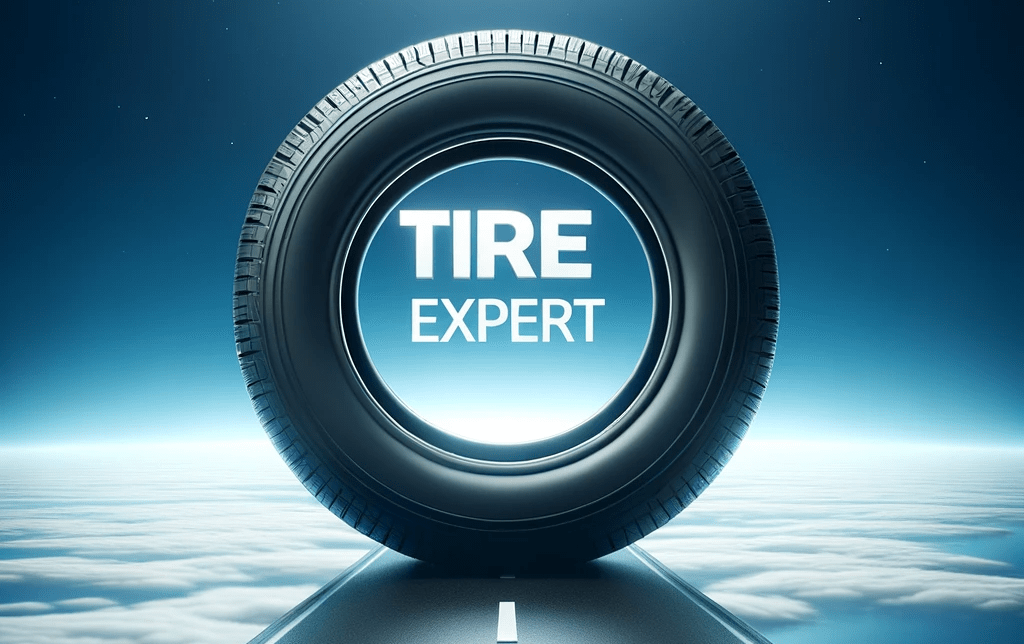Have you ever wondered why it’s important to keep your tire pressure at the recommended level? Maintaining consistent tire pressure not only improves your car’s performance but also ensures your safety on the road. By keeping your tires properly inflated, you can enhance fuel efficiency, extend the lifespan of your tires, improve handling and braking, and reduce the risk of accidents. In this article, we will explore the numerous benefits of maintaining consistent tire pressure and understand why it’s crucial to regularly check and adjust the air pressure in your tires.
Reduced Fuel Consumption
Improves gas mileage
Maintaining consistent tire pressure can significantly improve your gas mileage. When your tires are properly inflated, they experience less rolling resistance, which means your engine doesn’t have to work as hard to propel your vehicle forward. This, in turn, leads to better fuel efficiency and lower fuel consumption.
Reduces the need for fuel
By ensuring that your tires are always at their optimal pressure, you can reduce the need for frequent refueling. When your tires are underinflated, they create more friction with the road, causing your engine to work harder and consume more fuel. Conversely, overinflated tires can lead to poor fuel efficiency as well. Maintaining consistent tire pressure helps strike the right balance and reduces fuel consumption overall.
Lowers carbon emissions
As a responsible driver, you’re no doubt concerned about reducing your carbon footprint. Consistent tire pressure maintenance can play a significant role in achieving this goal. By improving your vehicle’s fuel efficiency, you are indirectly lowering your carbon emissions. Burning less fuel not only saves you money but also contributes to a cleaner and greener environment.
Extended Tire Lifespan
Prevents uneven wear
One of the key benefits of maintaining consistent tire pressure is preventing uneven wear. When your tires are over or under-inflated, they can wear out unevenly, leading to premature tire damage and the need for frequent replacements. By regularly checking and adjusting your tire pressure, you can ensure even tread wear, thereby extending the lifespan of your tires.
Reduces the risk of blowouts
Blowouts are not only dangerous but also costly to repair. Inflating your tires to the recommended pressure levels helps distribute the weight evenly across the tire surface, reducing the risk of blowouts. When your tires are properly inflated, they can better handle the demands of the road and withstand potential hazards, keeping you and your vehicle safe.
Saves money on frequent replacements
Tires can be a significant investment, and frequent replacements can quickly add up. By maintaining consistent tire pressure, you can prolong the lifespan of your tires, saving you money in the long run. When your tires wear evenly and are in good condition, you can avoid the need for frequent replacements and allocate your hard-earned money to other important expenditures.

Enhanced Safety
Improves vehicle handling
Maintaining consistent tire pressure is essential for optimal vehicle handling. When your tires are properly inflated, they provide the necessary grip and responsiveness to maneuver your vehicle safely on the road. Underinflated or overinflated tires, on the other hand, can compromise your vehicle’s stability, making it more difficult to control and increasing the risk of accidents.
Increases traction and stability
Properly inflated tires offer increased traction and stability, which are crucial for safe driving, especially in hazardous road conditions. Whether it’s wet or dry surfaces, maintaining consistent tire pressure ensures that your tires have the necessary grip to navigate curves, corners, and sudden stops. This increased traction greatly reduces the chances of skidding or losing control of your vehicle.
Decreases the risk of accidents
Safety should always be a top priority when it comes to your vehicle. Consistent tire pressure maintenance plays a vital role in reducing the risk of accidents. By keeping your tires inflated at the recommended levels, you are providing your vehicle with the necessary stability, control, and responsiveness to handle unexpected situations, ultimately minimizing the likelihood of accidents.
Optimal Performance
Ensures better braking capabilities
Maintaining consistent tire pressure is crucial for effective braking capabilities. Properly inflated tires allow your vehicle to come to a stop more efficiently and quickly when you apply the brakes. Underinflated tires, on the other hand, require more distance to stop, potentially compromising your safety and the safety of others on the road.
Enhances the responsiveness of the tires
When your tires are at the right pressure, it enhances their responsiveness. This means that your vehicle will react more quickly to your steering inputs, providing better control and maneuverability. With properly inflated tires, you can feel confident in your ability to navigate through traffic, tight spaces, or any challenging road conditions.
Improves overall vehicle performance
Consistent tire pressure maintenance contributes to the overall performance of your vehicle. By providing the necessary grip, stability, and responsiveness, your vehicle can perform optimally in various driving conditions. From acceleration to handling, properly inflated tires ensure that your vehicle operates at its best, providing you with a smooth and enjoyable driving experience.

Improved Ride Quality
Provides a smoother and more comfortable ride
Proper tire pressure directly impacts the comfort of your ride. When your tires are at the recommended pressure levels, they absorb road impacts more effectively, providing a smoother and more comfortable ride. Whether you’re driving on city streets or long stretches of highway, maintaining consistent tire pressure will help minimize the jolts and bumps you feel inside your vehicle.
Reduces vibrations and noise
Underinflated tires can cause excessive vibrations, making your ride uncomfortable and noisy. Consistent tire pressure maintenance helps reduce these vibrations, resulting in a quieter and more pleasant driving experience. By ensuring that your tires are properly inflated, you can enjoy a smoother, quieter ride, allowing you to focus on the road ahead.
Minimizes road impact
Consistent tire pressure maintenance also minimizes the impact that uneven or damaged roads can have on your vehicle. Properly inflated tires provide an additional layer of cushioning, absorbing shocks from potholes, bumps, and other road imperfections. By minimizing the impact, you can protect yourself, your passengers, and your vehicle from unnecessary wear and tear.
Better Tire Grip
Enhances traction on different road surfaces
Maintaining consistent tire pressure is essential for ensuring optimal traction on different road surfaces. From wet roads to gravel or snow-covered terrain, properly inflated tires provide the necessary grip to navigate safely. Whether you’re driving on slippery surfaces or rough terrains, having the right tire pressure allows you to maintain control and stay safe.
Reduces the risk of skidding and hydroplaning
Skidding and hydroplaning are common risks when driving in unfavorable weather conditions. Inflating your tires properly minimizes these risks by providing the necessary traction and grip to prevent hydroplaning or sliding on wet surfaces. By maintaining consistent tire pressure, you can have peace of mind knowing that your tires will effectively grip the road and keep you in control.
Improves maneuverability
Consistent tire pressure maintenance also improves the maneuverability of your vehicle. When your tires are properly inflated, your vehicle responds more accurately to your steering inputs, allowing you to navigate tight spaces, make turns, and change lanes with ease. Proper tire pressure gives you the confidence to maneuver your vehicle smoothly, enhancing your overall driving experience.

Reduced Tire Damage
Prevents overheating of the tires
Underinflated tires are prone to overheating, which can lead to tire damage or even failure. Maintaining consistent tire pressure allows for proper heat dissipation, preventing excessive heat buildup. By avoiding tire overheating, you can significantly reduce the risk of tire blowouts, prolonging the lifespan of your tires and ensuring your safety on the road.
Minimizes the chance of tire failure
Tire failure can occur due to various factors, including underinflation. Consistently monitoring and adjusting your tire pressure helps minimize the chance of tire failure. Properly inflated tires withstand the demanding conditions of the road, decreasing the risk of sudden tire blowouts or punctures. By taking care of your tire pressure, you can avoid unexpected tire failures and the potential dangers they pose.
Protects against premature wear
Premature tire wear is a common issue caused by improper tire pressure. The uneven wear patterns resulting from under or overinflated tires can significantly reduce the lifespan of your tires. By maintaining consistent tire pressure, you ensure that your tires wear evenly, avoiding premature wear and extending their longevity. This not only saves you money on frequent replacements but also keeps you safe on the road.
Lower Maintenance Costs
Reduces the need for frequent tire maintenance
By proactively maintaining consistent tire pressure, you can reduce the need for frequent tire maintenance. Properly inflated tires are less likely to develop issues such as leaks or damage, requiring fewer visits to the tire shop. By taking care of your tire pressure, you can save time and money on unnecessary maintenance and get the most out of your tires.
Saves money on tire repairs
Repairing damaged tires can be costly. However, by consistently maintaining optimal tire pressure, you can minimize the risk of tire damage that may require repair. Underinflated or overinflated tires are more susceptible to cuts, bulges, and punctures. By keeping your tires properly inflated, you can prevent these issues, saving you money on expensive tire repairs.
Minimizes the risk of roadside emergencies
Unexpected tire-related issues can lead to roadside emergencies and inconveniences. Maintaining consistent tire pressure plays a crucial role in minimizing the risk of these emergencies. By ensuring that your tires are properly inflated, you reduce the chances of experiencing a flat tire or a blowout, preventing unnecessary delays and ensuring a smooth and hassle-free journey.

Environmental Benefits
Reduces tire waste
Environmental sustainability is an important consideration in today’s world. Consistent tire pressure maintenance contributes to reducing tire waste. When your tires wear evenly and last longer, you decrease the frequency of tire replacements, ultimately reducing the number of tires that end up in landfills. By playing your part in tire waste reduction, you actively contribute to a greener and cleaner environment.
Decreases the need for tire production
Producing tires contributes to various environmental impacts, including carbon emissions and resource depletion. By maintaining consistent tire pressure, you can decrease the need for tire production. When tire lifespans are extended through proper pressure maintenance, fewer new tires need to be manufactured, reducing the demand for raw materials and energy-intensive production processes.
Lowers the environmental impact of vehicles
Proper tire pressure maintenance not only benefits the lifespan of your tires but also reduces the environmental impact of your vehicle. By improving fuel efficiency and reducing carbon emissions, maintaining consistent tire pressure helps create a more sustainable transportation system. When vehicles are more environmentally friendly, it leads to cleaner air, lower greenhouse gas emissions, and a healthier planet for future generations.
Maximized Vehicle Efficiency
Maintains proper suspension alignment
Proper tire pressure is crucial for maintaining the correct suspension alignment of your vehicle. When your tires are consistently inflated to the recommended pressure, it helps ensure that your vehicle’s suspension components are properly aligned. Proper suspension alignment contributes to a smoother ride, improved handling, and reduced wear on other vehicle components.
Optimizes the performance of other vehicle components
Maintaining consistent tire pressure has a positive ripple effect on other vehicle components. When your tires are properly inflated and function optimally, it reduces strain on other parts, such as the suspension, brakes, and transmission. By optimizing the performance of these components, you can avoid costly repairs, extend the overall lifespan of your vehicle, and enjoy a smoother, more efficient ride.
Avoids additional strain on the engine
Underinflated tires can put unnecessary strain on your vehicle’s engine. When your tires aren’t properly inflated, your engine has to work harder to overcome the increased rolling resistance. This can lead to decreased engine efficiency and increased fuel consumption. By maintaining consistent tire pressure, you alleviate this strain, allowing your engine to operate more efficiently and helping maximize your vehicle’s overall performance.
In conclusion, maintaining consistent tire pressure provides a wide range of benefits for both you as a driver and the environment. From improving fuel consumption and extending the lifespan of your tires to enhancing safety and maximizing vehicle efficiency, the advantages are clear. By taking the time to check and adjust your tire pressure regularly, you can enjoy a smoother, safer, and more cost-effective driving experience. So, don’t forget to pay attention to your tire pressure – it’s a small effort that yields significant rewards.


